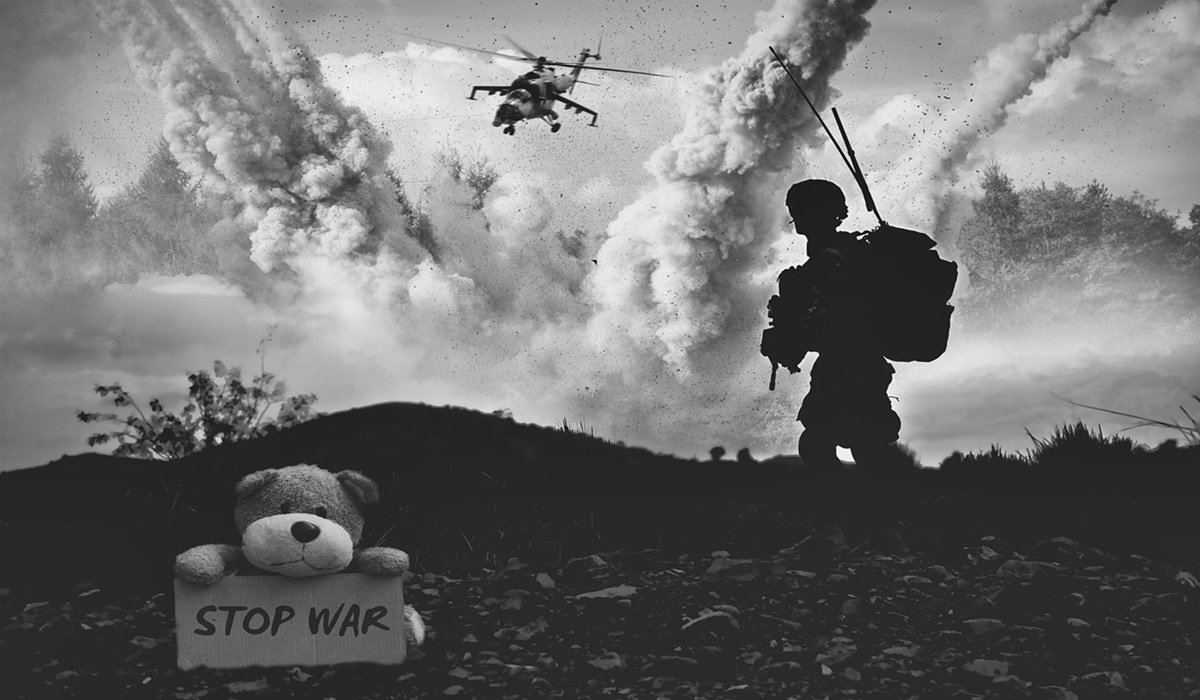Image Credit, Enrique
War has become one of the most profitable ventures in modern society, an enterprise so entrenched in global economies that peace seems to be a distant, irrelevant goal. The military-industrial complex thrives on chaos and destruction, and in return, it yields billions of dollars. Who needs peace when havoc, bloodshed, and suffering can be commodified, sold, and exported to the highest bidder? The world has constructed a grotesque economy around perpetual conflict, where weapons manufacturers, defense contractors, and private military firms profit from the endless churn of violence. It is a reality that reveals the depths of human greed and the moral decay that allows such horrors to persist.
In the corridors of power, politicians, lobbyists, and corporate executives exchange ideas not about how to end wars but about how to profit from them. Wars provide a convenient backdrop for companies that build everything from tanks to drones to rocket launchers, enabling them to secure government contracts worth billions of dollars. These industries are not concerned with the loss of life, the destruction of homes, or the displacement of entire populations. Their focus remains on the bottom line, and the more conflict there is, the more money they stand to make.
Take, for instance, the arms trade. It is one of the most lucrative industries on the planet. Countries that pride themselves on peace and diplomacy also happen to be among the largest exporters of weapons. The United States, Russia, Great Britian, France, and Germany dominate this trade, selling weapons to regimes that use them to suppress dissent, fuel civil wars, and terrorize their own citizens. These sales are not just transactions—they are endorsements of violence, with profit margins soaring as bullets fly.
In some parts of the world, war is less a catastrophe and more an opportunity. Civil unrest, insurgencies, and international conflicts create a demand for everything from mercenaries to surveillance technology. Companies like Blackwater (now Xe Services) have profited from privatizing military operations, providing mercenaries and security personnel to conflict zones across the globe. These firms operate with near-total impunity, their actions hidden under layers of bureaucracy and shielded from accountability.
Even more disturbing is the role governments play in sustaining this profitable system. Wars are often justified through jingoistic rhetoric, but beneath the surface lies a desire to maintain the status quo of military spending. Trillions of dollars flow into defense budgets every year under the guise of “national security,” but much of that money is funneled into the coffers of defense contractors. Companies like Lockheed Martin, Raytheon, and Boeing thrive in a world where fear is currency and conflict is inevitable. Politicians, eager to secure campaign contributions, make sure these companies are well-funded, even if that means prolonging or escalating conflicts.
The human cost of war, of course, is incalculable. Lives lost, families torn apart, entire cities reduced to rubble. But in the boardrooms of defense contractors, these are mere statistics, footnotes in quarterly earnings reports. For them, war is a business—and business is booming.
This is the reality of our society: one where peace is no longer profitable, where stability is bad for business, and where entire industries are built on the back of human suffering. It is a disgusting truth, but one that cannot be ignored. The question then becomes, how long will we tolerate this? How long will we accept a world where war is incentivized, and peace is dismissed as unprofitable? The answer lies not in the hands of politicians or CEOs, but in the collective will of people to demand an end to this madness. But for now, it seems the lure of billions is too tempting for those in power to resist.









